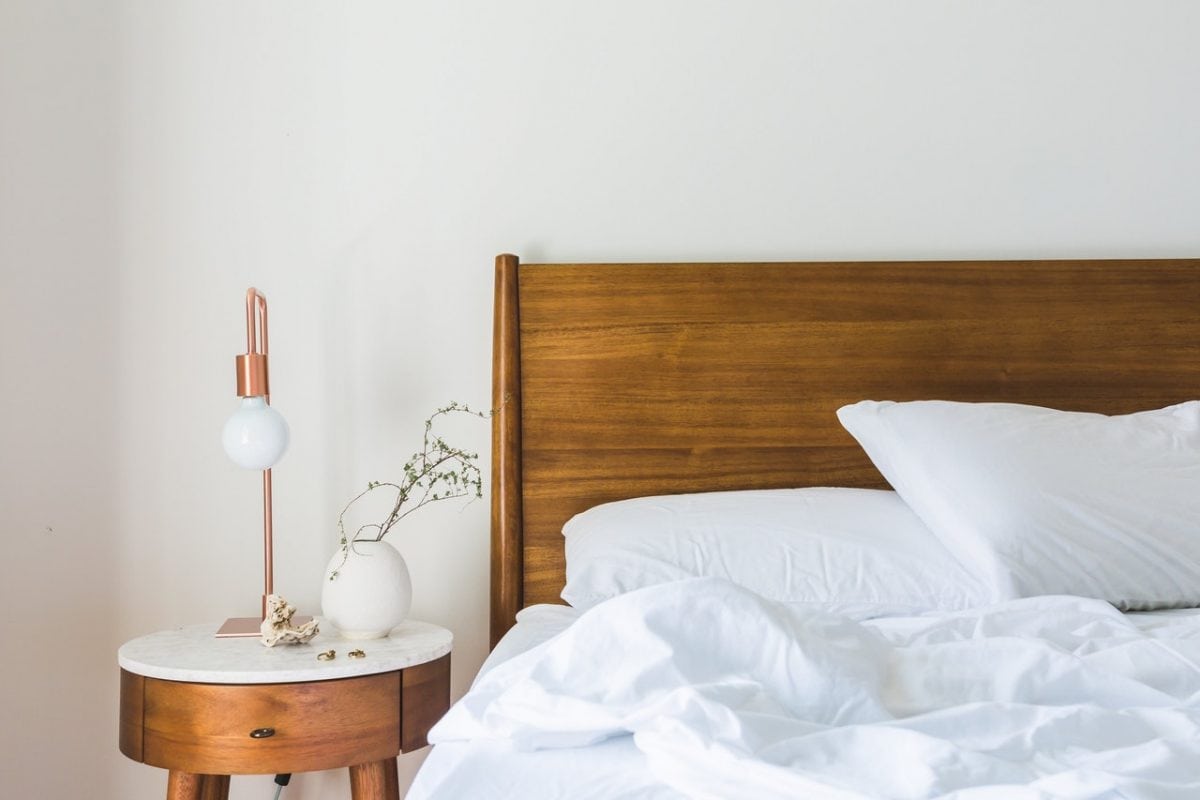You experience varying degrees of stress all the time. And getting enough sleep is a great way to cope with that stress. When you wake up feeling recharged and alert, you are better able to handle the demands of work, home, and life.
But what if your daily stress is keeping you from getting the restorative shut-eye you need? Too much tension and anxiety can affect your body and disrupt your sleep in several ways. That’s because the stress you experience during the day doesn’t end the minute your head hits the pillow. Your body produces stress hormones, which can linger in your body and stimulate it well into the night.
Here are a few scenarios you might experience:
• Your mind is racing, making it hard to fall asleep.
• You remain in a light sleep, rather than reaching deep sleep.
• You wake up often, finding it hard to stay asleep.
How to Wind Down Before Bedtime
The good news is that you can overcome sleeplessness by learning a few easy relaxation skills you can do before bed. You can even do some of these techniques should you wake up in the middle of the night and need help falling back asleep. Not only do these skills help you ward off daily stress responses and improve the quality of your sleep, they may also reduce your need for sleep medications. Ensure a good night’s sleep with these relaxation skills.
• Take a deep breath: One of the easiest ways to manage stress and anxiety is to simply breathe deeply. This technique goes by a few names: diaphragmatic breathing, abdominal breathing, or belly breathing. It may seem like a new skill you have to learn, but it’s really your body’s natural way of breathing. By taking slow, deep breaths, you inhale more oxygen and exhale more carbon dioxide (CO2). The benefit: a slower heart rate and lower blood pressure. Just 10 minutes of deep breathing is all you need to help your body relax before you hit the hay.
• Brew a cup of evening tea: Hot or iced, sipping a cup of tea in the evening makes for a calming and refreshing bedtime ritual. As it becomes a habit, the familiar act of sipping your evening tea can signal to your brain that it’s time to wind down for the night. There are many soothing and delicious teas out there, like Yogi BedtimeⓇ Tea and Teavana Lavender DreamsⓇ White Tea. Just be sure to drink it at least an hour before you turn in, so you don’t find yourself getting up to use the bathroom multiple times in the night.
• Perform Shavasana: There’s a good reason many yoga sequences end with a 5-minute Shavasana—this basic move can help you calm your mind and lower your heart rate after a good workout. But you don’t have to attend a yoga class to reap the benefits of the pose. You can practice this “deeply quiet posture” before bedtime to release the day’s stress and tension. All you have to do is lie back on a comfortable surface, close your eyes, focus on finding any tension in your mind and body, and then let it go. Experience total relaxation with these step-by-step Shavasana instructions.
• Go for a stroll: It’s hard to find the energy to exercise when you’re exhausted, but maintaining your fitness can help you sleep better and restore your energy. If you’re feeling too depleted for a full workout, go for a 10-minute stroll after dinner with your spouse, kids, and/or dog. Keep your pace slower than normal; the idea isn’t to get your heart rate up but to release pent-up emotions from the day. This is also a great time to practice a little mindfulness, taking in the scenery, sounds, smells around you.
• Create positive mental imagery: As the saying goes, what goes up must come down—and that’s as true of gravity as it is your stress level. Negative thoughts can boost your stress response, while positive thoughts can help you keep it at bay. Lowering your stress levels as you get ready for bed can reduce the time it takes to fall asleep—and that’s where positive mental imagery comes in. Give it a try: Picture yourself someplace that feels peaceful and serene to you. Perhaps it’s a footpath winding through a lush forest, a quiet beach on a tropical shoreline, or a horizon lined with awe-inspiring red rock formations. This kind of visualization can encourage your mind to relax. And who knows, you may find yourself being whisked away to those very places in your dreams.
• Drift off with binaural beats: Listening to soothing music is a nice way to go to sleep, but any tunes with lyrics can be distracting and keep your mind busy. Want to try something new and different? The relaxing rhythm and repetition of binaural beats may be just what you need to turn off your mind at night. While the beats themselves may not lull you to sleep, listening to them could help you to feel less stressed and anxious, leading to a more restful slumber. Tune into this free playlist and find out if binaural beats work for you.
Snooze the Night Away
How do you like to unwind before bed? Can you think of other relaxation skills you’d like to try? Let us know how you’ll make relaxation and better-quality sleep part of your healthy lifestyle.


